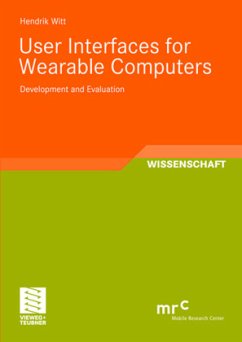Looking at mobile solutions or wearable computing, it immediately becomes apparent that their user interfaces call for di?erent solutions than the desktop paradigm. This is not only due to the very small size of the displays but also predominantly to the need for a much stronger dependency on the applications. In addition, they feature a use of environmental sensors which has never been seen before enabling applications to run in an Ambient Intelligence Environment. This development requires new solutions and constitutes new research questions. With this book, Dr. Witt contributes to the goal of including mobile and wearable interfaces into a proper development process again: He develops a systematical approach for the development of mobile and wearable user interfaces that can be embedded in standard development processes, and which can also be evaluated during this process. Furthermore, he also describes the architecture and implementation of the WUI, a We- able User Interface Toolkit, which provides the necessary levels of abstraction to allow the programmers of mobile and wearable solutions to easily implement novel solutions in an almost standardized way. These results are based on a solid theoretical foundation and thorough state-of-the-art research. The evaluation of mobile and wearable user interfaces which usually combine a primary manual task with computer assistance is developed as an especially clever ga- like process: Dr. Witt uses the "hot wire" game to combine all relevant aspects for a proper evaluation.

